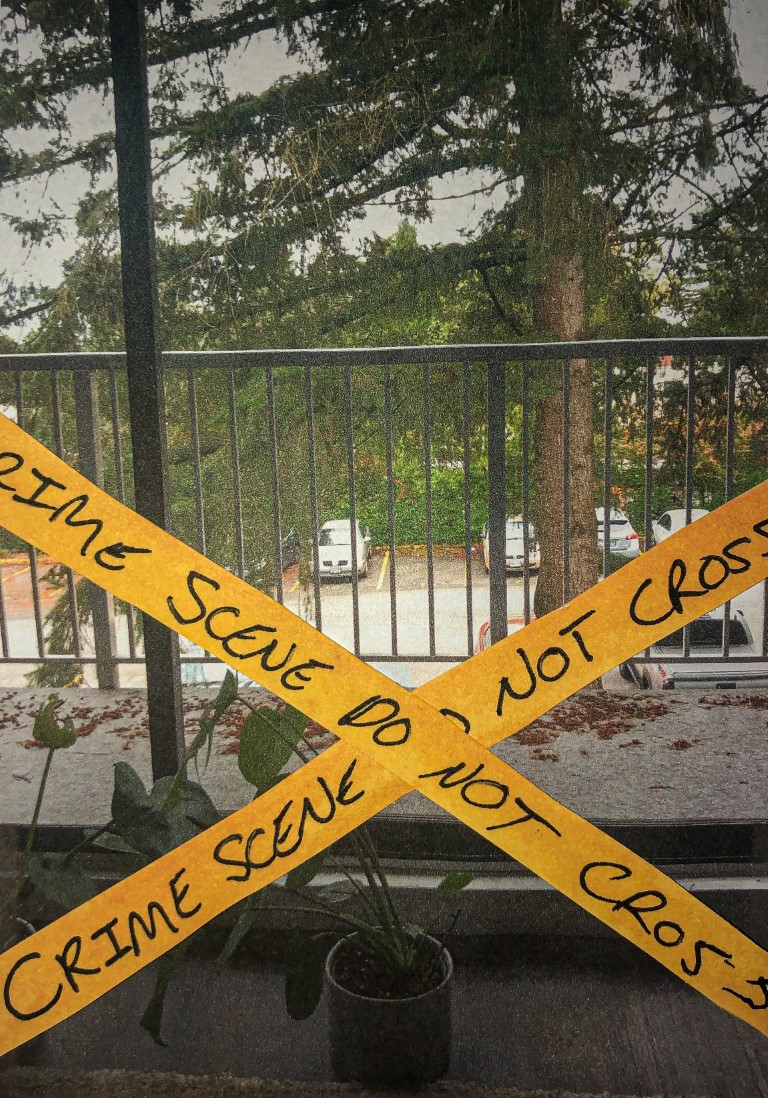
By Janis McMath, Editor-in-Chief
True crime has skyrocketed in popularity in recent years, and with little resistance. If you need proof, look no further than CrimeCon—it’s like ComicCon but instead with murder nerds. Podcast top ten lists usually have a true crime podcast in their mix; it’s all the rage to engage in this gruesome hobby. While an interest in true crime certainly offers many upsides, it should not be normalized without some necessary warnings. This hobby comes with more real-life consequences than many other fandoms; true crime is not to be taken lightly.
Before we look at the problems, it is important to acknowledge the positives of the true crime fascination. Fans often offer donations and support the families of those affected; some YouTubers take the initiative to donate part of their earnings from their true crime content to organizations that help victims and prevent crimes. Fans can even lead to the reopening of cases. For example, the Tiger King rage has lead to police looking for new leads in the cold case, and the podcast Murder Squad even had a listener submit DNA that lead to the arrest of a killer in her extended family. Positive communities that offer support and reaffirmation are made in these fandoms. True crime also has a lot of educational and entertainment value.
But it is essential to consider the downsides with a hobby that deals with such terrifying topics, as it undoubtedly has mental health repercussions to look at. This hobby literally entails doing deep-dive research into the grisly murders of other human beings. A 2010 study called “Captured by True Crime” concludes that women like true crime more than men. The same study also found that women prefer to watch true crime series that focus on women as the victims. There are articles and blogs everywhere where women state that the reason they are interested in true crime is because they want to prevent themselves from being victimized. This is flawed logic; there is no way to prevent many of the murders that have occurred regardless of whatever precautions could have been taken. This can only serve to make the viewer think of themselves as a victim often, turning them into a super paranoid person.
A study called “Association Between Fear of Crime and Mental Health and Physical Functioning” showed that fear of crime had a “surprisingly weak relationship” with the actual recorded crime rate occurring in a person’s neighbourhood. Hobbies are often used to unwind and relax, meanwhile the hobby of true crime often causes unnecessary stress that is not based on relevant statistics. True crime YouTubers I have watched often state that they cry when they compile the information for their videos. Is this what we want from our hobbies? We should not carry such an emotional burden on a regular basis.
Desensitization is another huge worry when it comes to consuming true crime too liberally. Fans can get caught up in the dramatic characters, love affairs, shocking turns, and exciting pacing of true crime. They get so lost they forget that these aren’t fictious stories they can harmlessly participate in the fandoms of. Armchair detectives can have real negative impacts on real families. True crime fans have been known to harass the families of victims and bring a lot of unnecessary pressure to them through forced stardom. These fans also love to speculate, regardless of whether or not they have enough evidence to make claims—and we all know that simple speculations have the power to destroy people’s reputations.
Fans also have been known to do walking tours where bodies have been found, buy t-shirts with a killer’s face on it, and trek out to the hometowns of victims to get a cute photo-op at their favourite murder site. These things can reintroduce trauma to the living victims of those murders. Some true crime shows (Netflix’s I Am A Killer for example) publish content regardless of the wishes of the suffering family. This hobby can’t ethically be enjoyed in the same way many other hobbies can with fun merchandise and cute inside jokes, but many seem to ignore the ethical point—creating a harmful culture. Grieving families who have experienced such horrific events should have to worry about yet another thing in their life.
As true crime grows in popularity, so does its validity as a form of entertainment. All fandoms come with their downsides, and true crime definitely poses some very harmful downsides to many individuals. The hobby clearly has some equally significant upsides, so this is by no means a condemnation to those who are interested or already invested in true crime. This is just to say that true crime should be enjoyed responsibility—both with consideration to one’s mental health and the welfare of the victims involved.
On to Cincinnati,
Janis


